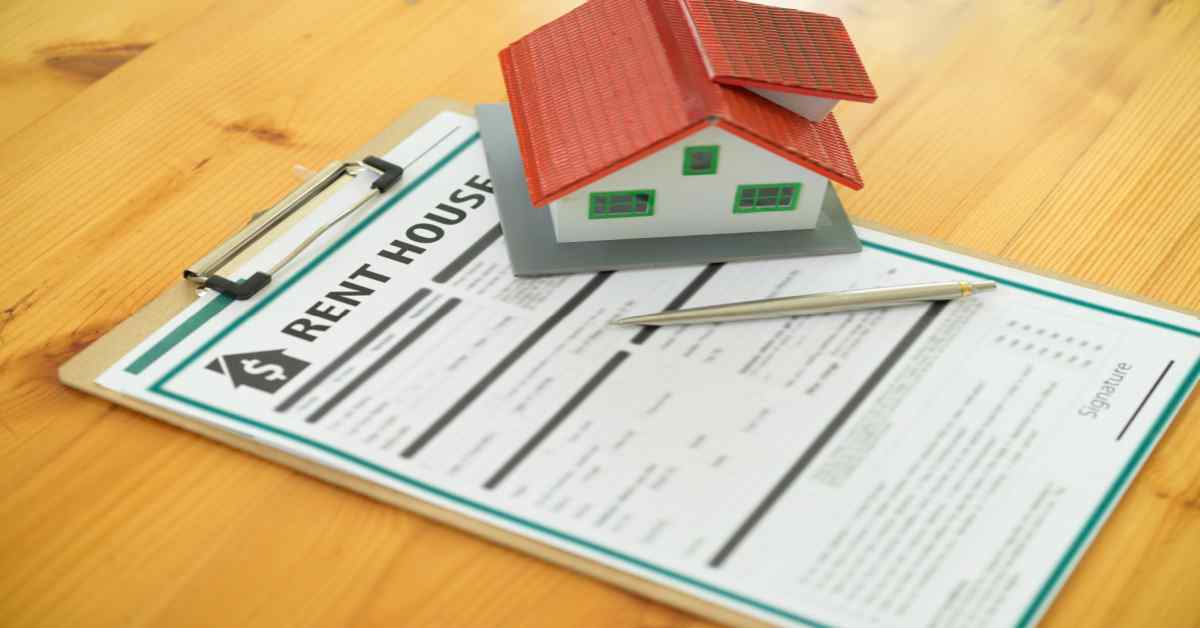Table of Contents
Quality Service Guarantee Or Painting Free

Get a rental agreement with doorstep delivery

Find the BEST deals and get unbelievable DISCOUNTS directly from builders!

5-Star rated painters, premium paints and services at the BEST PRICES!
Loved what you read? Share it with others!

How to Become a Landlord: Essential Steps to Success in 2026
Table of Contents
Becoming a landlord involves owning and managing rental properties, requiring a blend of business acumen, legal knowledge, and interpersonal skills. The allure often stems from potential passive income and long-term investment growth through property appreciation. However, this path comes with responsibilities, from property maintenance to tenant management and legal obligations. While the prospect of regular rental income is attractive, aspiring landlords must also be prepared to navigate the complexities of property management and adapt to changing market conditions.
How to Become a Landlord Step-by-Step Guide in 2026
Becoming a landlord involves several key steps, from property acquisition to tenant management. Here's a brief overview of the process:
- Research the market: Understand local real estate trends and rental demands to make informed decisions.
- Acquire property: Purchase a suitable rental property that aligns with your investment goals and target tenant demographic.
- Understand legal requirements: Familiarize yourself with landlord-tenant laws and obtain necessary licenses and permits.
- Set rental terms: Determine rent prices, lease terms, and policies for your rental property.
- Market the property: Advertise your rental to attract qualified tenants through various channels.
- Screen tenants: Develop a thorough screening process to select reliable and responsible tenants.
- Create a lease agreement: Draft a comprehensive lease that protects your interests and outlines tenant responsibilities.
- Manage the property: Finally, develop systems for rent collection, maintenance, and addressing tenant concerns effectively.
Acquiring a Rental Property
Finding the right property for rental purposes is a crucial first step in becoming a successful landlord. Start by researching the local real estate market, focusing on areas with strong rental demand and potential for appreciation. Also, consider factors such as proximity to amenities, schools, and public transportation, as these can significantly impact your property's desirability to potential tenants.
Quality Service Guarantee Or Painting Free

Get a rental agreement with doorstep delivery

Find the BEST deals and get unbelievable DISCOUNTS directly from builders!

5-Star rated painters, premium paints and services at the BEST PRICES!
When it comes to financing your rental property, there are several options to explore. Traditional mortgages, investment property loans, and home equity lines of credit are common choices for aspiring landlords. For first-time buyers, FHA loans also can be an attractive option, as they often require lower down payments. However, keep in mind that investment properties typically require higher down payments and may have stricter qualification criteria than primary residences.
Legal Requirements for Becoming a Landlord
Understanding and complying with legal requirements is essential for landlords. Here's an overview of key legal aspects:
- Landlord-tenant laws: Familiarize yourself with federal, state, and local regulations governing rental properties and tenant rights.
- Fair Housing Act: Understand and comply with anti-discrimination laws in advertising, tenant selection, and property management.
- Property licenses: Obtain necessary licenses and permits required by your local jurisdiction to operate a rental property.
- Insurance: You should also secure appropriate landlord insurance to protect your property and cover potential liabilities.
How to Start Renting Property with Little to No Money
Starting as a landlord without significant capital requires creativity and strategic thinking. Here are some strategies to consider:
- House hacking: Live in one unit of a multi-unit property while renting out the others to offset mortgage costs.
- Lease options: Negotiate a lease with the option to buy, allowing you to control the property with minimal upfront investment.
- Partner with investors: Form partnerships to pool resources and share responsibilities for property acquisition and management.
Managing Rental Properties
The approach to managing rental properties has evolved significantly with the advent of technology. Traditional property management involves hands-on tasks such as in-person rent collection, physical property inspections, and face-to-face tenant interactions.
In contrast, digital property management leverages technology to streamline operations and enhance efficiency. Online platforms and software solutions also offer tools for virtual property tours, online rent collection, digital lease signing, and automated maintenance request systems.
Becoming a Section 8 Landlord
Becoming a Section 8 landlord involves participating in a government-assisted housing program. Here's the process:
- Contact local PHA: Reach out to your local Public Housing Authority to express interest in the program.
- Property inspection: Schedule and pass a Housing Quality Standards (HQS) inspection to ensure your property meets requirements.
- Set rent: Propose a rent amount that falls within the PHA's payment standards for your area.
- Tenant selection: Choose a Section 8 voucher holder as a tenant, or have your current tenant apply for a voucher.
- Sign agreements: Complete necessary paperwork, including the Housing Assistance Payments (HAP) contract with the PHA.
Tenant Screening and Lease Agreements
Thorough tenant screening is a critical step in protecting your investment and ensuring a smooth rental experience. Start by developing a comprehensive application process that includes detailed personal information, employment history, and references. Conduct credit checks to assess financial responsibility and review rental history to identify potential red flags.
Creating a clear and fair lease agreement is equally important in establishing a solid landlord-tenant relationship. Your lease should also outline all terms and conditions of the rental arrangement, including rent amount, due date, and payment methods. Clearly state policies regarding pets, smoking, subletting, and maintenance responsibilities.
Eviction Procedures and Legalities
Eviction is a legal process for removing tenants from a rental property. Here's an overview:
- Valid reasons: Evictions typically require grounds such as non-payment of rent or lease violations.
- Notice: Provide written notice to the tenant as required by local laws, often 3-30 days depending on the situation.
- Court filing: If the tenant doesn't comply, file an eviction lawsuit in the appropriate court.
- Court hearing: Present your case before a judge, who will decide whether to grant the eviction.
- Tenant removal: Coordinate with law enforcement to execute the eviction if the tenant doesn't leave voluntarily.
Financial Considerations and Taxes
Managing rental income effectively is crucial for the success of your landlord business. Keep detailed records of all income and expenses related to your rental property. This includes rent payments, maintenance costs, property taxes, and insurance premiums.
Understanding tax implications is equally important for landlords. While rental income is taxable, the IRS also allows numerous deductions that can significantly reduce your tax liability. Common deductions include mortgage interest, property taxes, insurance premiums, maintenance and repair costs, and depreciation of the property.
Becoming a Landlord of Apartments
Renting out apartments versus single-family homes presents unique challenges and opportunities. Here's a comparison:
| Aspect | Single-Family Homes | Apartments |
|---|---|---|
| Tenant turnover | Generally lower | Typically higher |
| Maintenance | More responsibility, higher costs | Shared costs, economies of scale |
| Cash flow | Potentially higher per unit | More stable with multiple units |
| Management | Simpler, fewer tenants | More complex, requires systems |
Becoming a landlord offers exciting opportunities for financial growth and investment diversification. While challenges exist, from legal complexities to tenant management, the potential rewards are significant. Success requires business acumen, people skills, and adaptability. Whether starting with one property or building a large portfolio, the key lies in informed decision-making, legal compliance, and professional property management. With the right mindset and strategies, being a landlord can be both fulfilling and profitable.
Frequently Asked Questions
1. How much money do I need to start as a landlord?
Ans: The initial investment varies depending on your location and property type. Generally, you'll also need enough for a down payment (typically 20-25% for investment properties), closing costs, and reserves for maintenance and vacancies.
2.What are the biggest challenges of being a landlord?
Ans: Major challenges include dealing with problem tenants, managing maintenance and repairs, navigating complex landlord-tenant laws, handling vacancies, and balancing cash flow.
3.Can I be a landlord while working full-time?
Ans: Yes, many landlords maintain full-time jobs. Success depends on efficient systems for property management, possibly hiring a property manager, and being responsive to tenant needs. As your portfolio grows, you may also need to dedicate more time or consider professional management.
4.How do I determine the right rent price for my property?
Ans: Research comparable rentals in your area, consider your property's unique features, and factor in your expenses. Online rental marketplaces and local real estate agents can also provide insights.
5.What insurance do I need as a landlord?
Ans: Landlord insurance is essential, covering property damage, liability, and loss of rental income. Also, consider additional coverage like flood insurance if necessary.
Loved what you read? Share it with others!
Most Viewed Articles

Gurugram Metro Routes: Map, Stations, Timings and Latest Updates 2026
January 31, 2025
71362+ views

Leasing Commercial Property to Large Franchises for Maximum Profit in India 2026
May 28, 2025
70618+ views

Rental Agreements in India: Meaning, Format, Online Registration and Legal Validity in 2026
May 28, 2025
62504+ views

Top 10 Leading IT Parks in Hyderabad 2026
January 31, 2025
41524+ views

भारत में घर किराए पर देने के लिए 5 आसान स्टेप्स (कदम)
January 31, 2025
39255+ views
Recent blogs in
Furnished vs Unfurnished Rental: Key Differences, Pros & Cons
November 27, 2025 by Ananth
What Is Rent Roll: Meaning, Importance & Use in Property Management
November 27, 2025 by Kruthi
What is Real Estate Arbitrage: Types, Benefits & How It Works in India
November 27, 2025 by Ananth
What Is Rent Default: Meaning, Reasons & Legal Action for Landlords
November 27, 2025 by Vivek Mishra
Realtor vs Real Estate Agent: Meaning, Key Differences and Benefits in India
November 25, 2025 by Ananth









 Full RM + FRM support
Full RM + FRM support
Join the conversation!